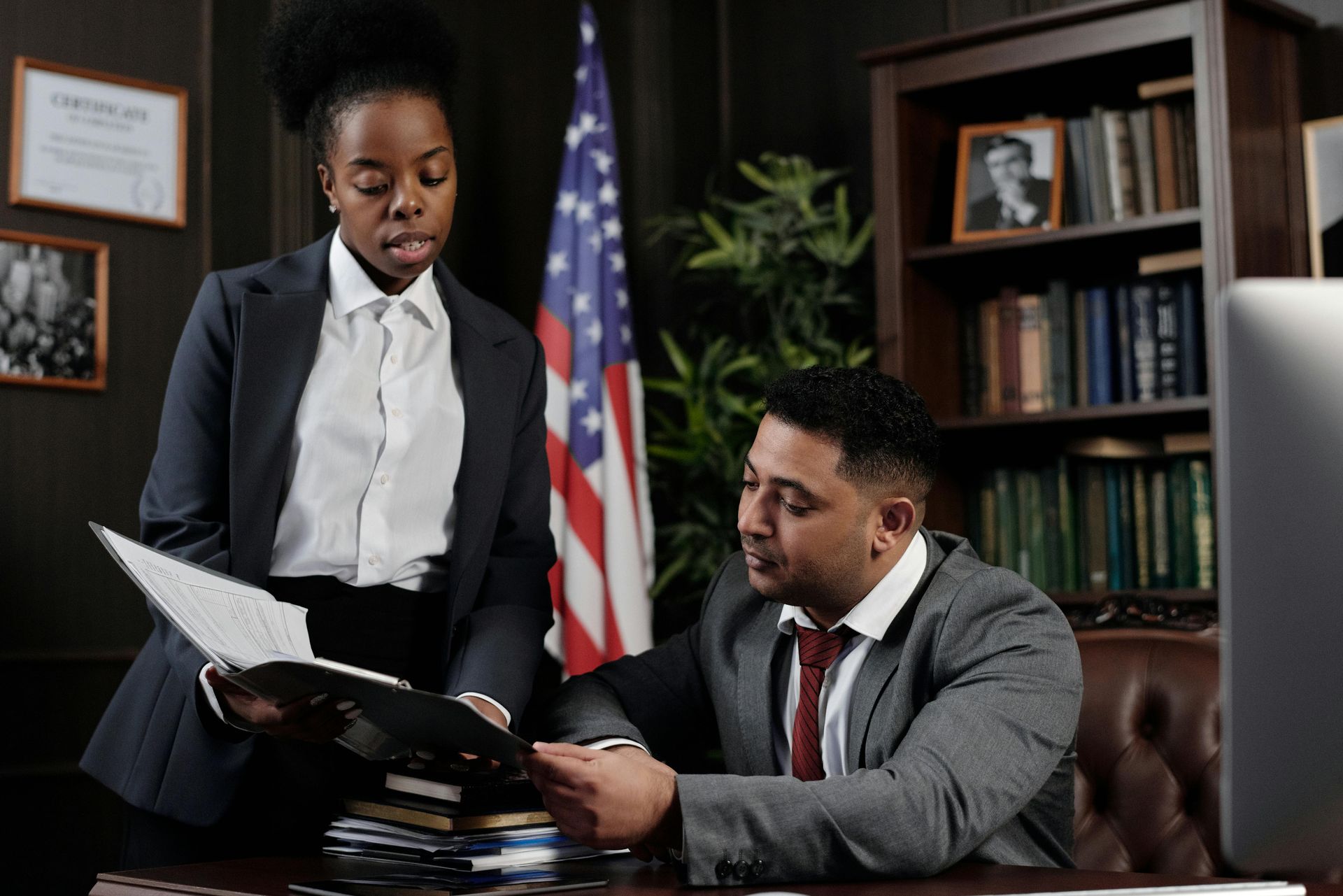Kris Quadros-Ragar, Esq.
Kris Quadros-Ragar, Esq.

On January 29, 2025, President Trump signed the Laken Riley Act into law, significantly altering how immigration policies are enforced in the United States. This legislation grants State attorneys general and other authorized officials unprecedented authority to interpret and implement federal immigration policies. It also empowers them to take legal action against the federal government if they believe federal immigration enforcement negatively impacts their state. With this new authority, states now play a direct role in shaping immigration outcomes—a responsibility traditionally held by the federal government. One of the most immediate effects of the Laken Riley Act is that it allows states to seek injunctive relief to block the issuance of visas to nationals of countries that refuse or unreasonably delay the acceptance of their citizens who have been ordered removed from the United States . This means that if a country does not cooperate with U.S. deportation efforts, its nationals—regardless of their legal status—could face significant difficulties obtaining or renewing visas. As a result, foreign nationals from these countries may encounter increased uncertainty when traveling internationally or securing work authorization in the U.S. Beyond visa processing, the law introduces a new level of unpredictability into the immigration system. By allowing state attorneys general to intervene in federal procedures, and immigration policies that may now vary based on state-level decisions. In the coming months, it remains to be seen how individual states will wield this power—whether they will actively seek to block visa issuance or push for broader immigration enforcement measures. For foreign nationals and employers, staying informed about which countries are deemed “uncooperative” is now more important than ever. Those needing visa renewals or planning international travel should prepare for potential delays and seek professional guidance to navigate these uncertainties. The Laken Riley Act also mandates federal immigration authorities to detain and deport individuals without legal status who are charged with certain offenses, including minor theft or shoplifting, assaulting a law enforcement officer, and crimes resulting in death or serious bodily injury. This provision underscores a stricter approach to immigration enforcement, affecting individuals accused of both minor and serious offenses. With immigration policies now subject to a new layer of state involvement, it is more important than ever to stay informed and prepared for potential challenges. If you have concerns about how the Laken Riley Act may affect your immigration status or business, contact Santos Lloyd Law Firm for strategic counsel tailored to your needs.

A key development occurred in December 2024, when the deference policy was officially written into regulation (the “H-1B modernization rule”), set to take effect on January 17, 2025. Once it takes effect, USCIS adjudicators must apply the deference policy to extension requests involving the same employer, the same employee, and the same job details. USCIS can still decide not to defer to the previous approval if: There was a material error in the earlier approval. There has been a material change in circumstances or eligibility. New information raises doubts about eligibility. Even in these situations, officers must explain why they are not deferring. Importantly, USCIS does not have to defer to decisions made by other agencies, such as the U.S. Department of State or Customs and Border Protection. By turning the deference policy into a regulation, it becomes more difficult for future administrations to eliminate it quickly. Any attempt to rescind or change the policy now requires a lengthy rulemaking process that includes a public notice-and-comment period. Key Takeaways for Employers Greater Predictability: The deference policy, now a regulation, gives employers more certainty that extension petitions will be approved if there are no major changes in the employee’s role or the employer’s situation. Potential Changes Ahead: A future administration could still try to rescind this rule, but they must follow a formal regulatory process, which takes time and offers employers some warning. File Extensions Early: Employers can submit extension petitions up to six months before a visa expires. Filing early can help avoid unexpected policy shifts and minimize risks of RFEs or denials. Overall, the codification of the deference policy is a significant step that offers much-needed stability and efficiency in the U.S. immigration process. By planning ahead and staying informed, employers can take advantage of this improved predictability. As always, working closely with an immigration attorney ensures that extension applications are accurate, well-prepared, and filed promptly—especially during times when policy may evolve.

The United States has long been a prime destination for both business ventures and leisure travel. Every year, thousands of individuals from across the globe visit the U.S. for short-term purposes such as business meetings or vacations. To do so, foreign nationals must obtain a non-immigrant visa, with the B1/B2 visa being one of the most commonly used for temporary visits. The B1/B2 visa allows individuals to enter the U.S. for specific purposes, whether for business-related activities or exploring the country’s tourist attractions. Although both visas fall under the same category, they serve distinct purposes depending on the nature of the visit. The B1/B2 visa, issued by the U.S. Department of State, is a dual-purpose visa that enables non-immigrants to enter the United States temporarily for either business (B1) or tourism and other non-business activities (B2). This combined visa offers flexibility, allowing travelers to handle both business and leisure matters within a single trip. The B1 visa is intended for those visiting the U.S. for business purposes. It’s important to note that the B1 visa does not allow for employment or managing a business in the U.S. Instead, it’s ideal for individuals who need to: Consult with business associates. Negotiate contracts or finalize deals. Attend conferences, conventions, or seminars in fields such as education, science, and trade. In short, the B1 visa is for individuals conducting essential business activities during their temporary stay, without seeking employment in the U.S. The B2 visa , on the other hand, is designed for individuals visiting the U.S. for non-business purposes such as: Tourism or vacations. Visiting friends or family. Receiving medical treatment. This visa also allows for participation in other non-business activities, such as social events or short-term recreational courses. Once granted, both B1 and B2 visas typically allow for stays of up to six months. The exact length of your stay is determined by U.S. Customs and Border Protection (CBP) officers upon your entry, based on the purpose of your visit and the terms of your visa. Whether visiting the U.S. to explore business opportunities or enjoy the country’s many tourist attractions, the B1/B2 visa provides a flexible option for short-term stays. By understanding the requirements and differences between these visas, you can better navigate the application process and make the most of your trip to the U.S.
L'avocate Kris Quadros-Ragar est enthousiaste et dévouée à aider les autres à poursuivre leurs rêves par le biais de l'immigration. Avant de rejoindre Santos Lloyd, Kris était avocate associée dans un cabinet d'avocats spécialisé dans les fiducies et les successions en Californie. Sa familiarité avec les exigences et les procédures des agences fédérales et sa perspective du processus en tant qu'immigrante l'ont incitée à poursuivre une carrière dans le droit de l'immigration. Lorsque Kris n'est pas au travail, elle aime passer du temps avec ses chiens, faire de la randonnée, jouer au golf et cuisiner.
En savoir plus sur Kris
Domaines d'activité
 Button
Button- Droit de l'immigration
Formations
 Button
Button- Juris Doctor, Université fédérale de Santa Catarina (UFSC), Brésil
- Maîtrise en droit (LL.M.), Université de Californie du Sud (USC) Gould School of Law, Los Angeles
Langues
 Button
Button- Portugais
- Anglais
Admission Au Barreau
 Button
Button- Association du barreau de l'État de Californie
Distinctions Et Récompenses
 Button
Button- Obtention de la bourse d'excellence du doyen de l'USC Gould
- Diplômé avec mention très bien



